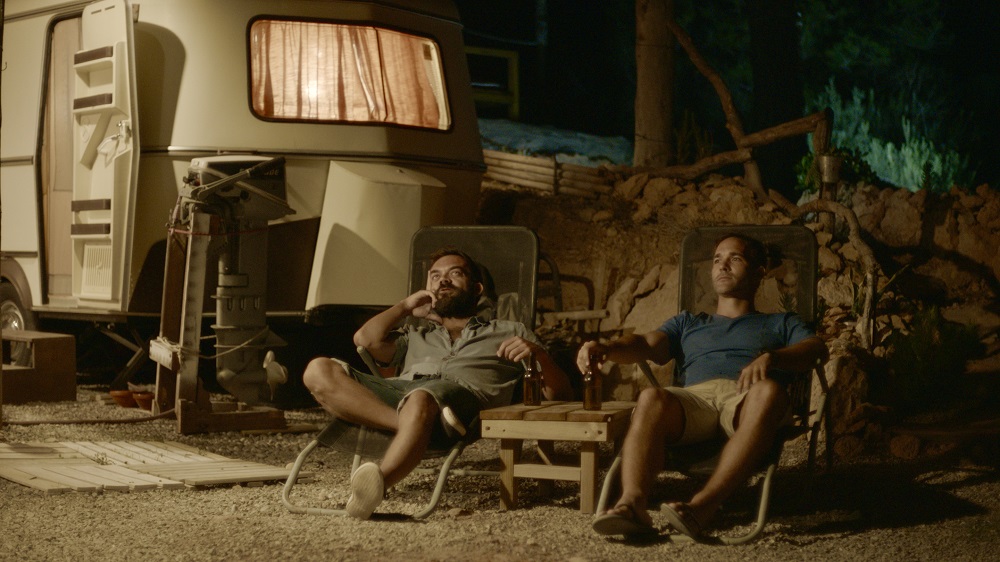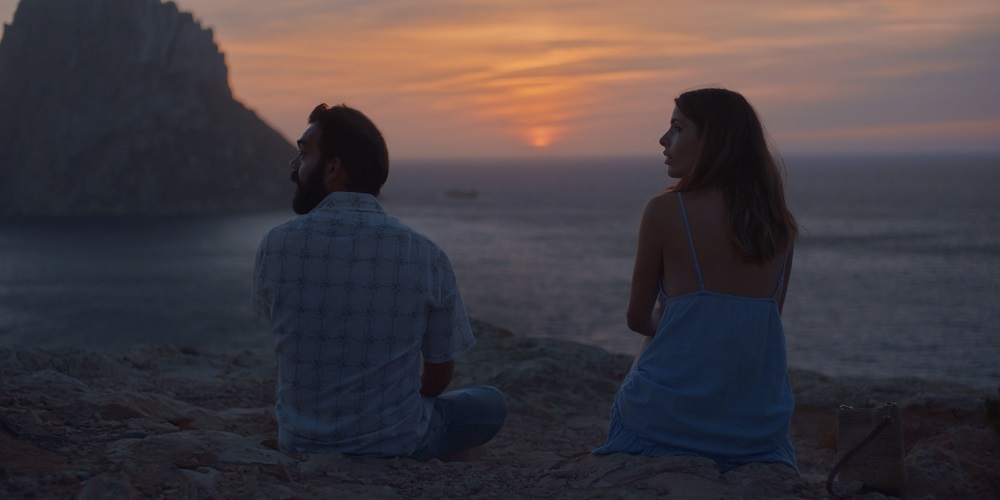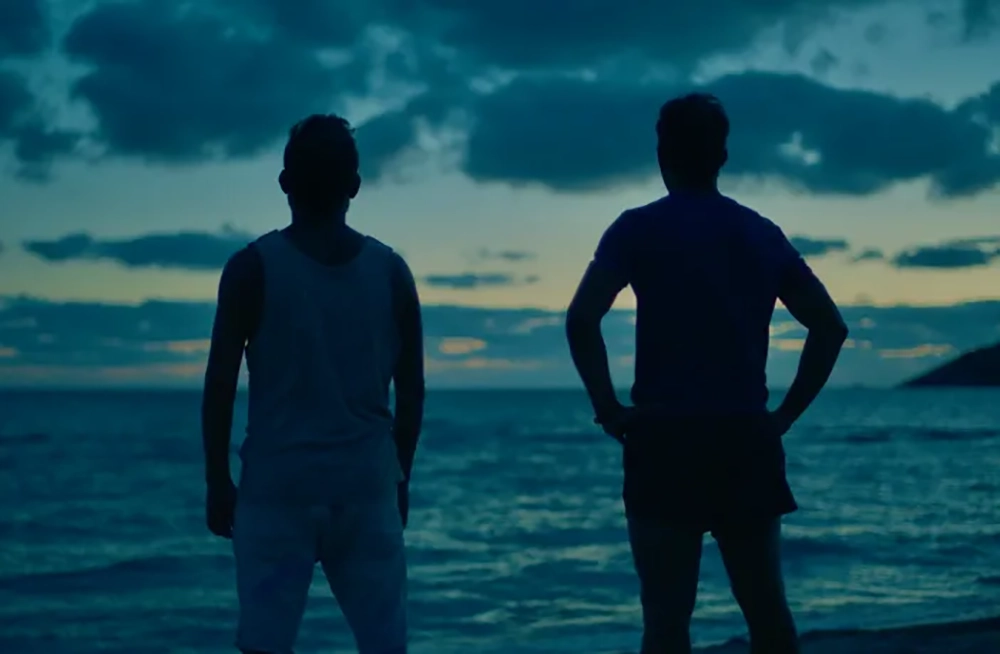August 2020. The lives of three young professionals intersect in the post-pandemic lockdown Ibiza where they will try to overcome their personal tragedies, rediscover themselves and move on. Jesus Lloveras’ new film, “Ibiza Blue,” takes a closer look into immeasurable grief, and how people cope with it.
‘Ibiza Blue’ presents two time frames, one that begins in May of 2014 in Madrid, and the other in August of 2020 in Ibiza. As the film progresses, we learn of its three characters—friends Julio (Gonzalo Bouza) and Carlos (Lloveras) and a woman named Alba (Alicia Lorente)—and their shared skies painted in gray. One lost a brother, the other a daughter (and a subsequent divorce from their partner), and the other a father.
Spending their time on the island of Ibiza, these souls deal with their griefs differently. Whereas Julio abandoned his career as a doctor to dedicate himself to a simple life on the island, his friend from school Carlos remains reticent to talk about his life. Alba, on the other hand, readily opens up about her loss, even sharing to her newfound friend that her stay in Ibiza is a means to get away and forget the pain.
These personal losses would bind them as their paths intersect, and ultimately break them apart—with a hope that their lives have been transformed for the better.
Related Review: ‘The Resemblance’ Examines Novel Measures to Overcome Grief and Ultimately Heal

‘Ibiza Blue’: Using Paradise as Literal (and Metaphorical) Escape from Life’s Storms
One thing that this writer found really interesting with the film is its use of a paradise not only as a literal getaway for people escaping the 9 to 5; but also a metaphorical representation of one’s insistence to get away from monsters beneath their bed or creeping—and crippling—emotions brought by tragedies.
But their running away eventually catches up to them; and one of the three characters knows this just as much. In one of the film’s reveals (there are a few here), they say with exasperation, “You’re here with your joints, naked on the beach, and [you think]everything is fine!” Nonetheless, such action is something we understand. After all, we might have at least once in our lives hoped that sweeping our problems under the rug would somehow make the emotional burdens magically disappear.
In ‘Ibiza Blue’, we bear witness to people consumed by their grief, finding common ground with their suspensions of disbelief. Whether masking their problems they don’t want to deal with as “a change of scenery” or “giving themselves some time,” the fact remains that these are common people whose instinctive response is to run away from life’s problems.

An Auspicious Debut from Director Jesus Lloveras
As his directorial debut, ‘Ibiza Blue’ brings actor-director Jesus Lllovera behind the lens, lending a natural perspective in translating a tender story (that he also co-wrote) on the screen. Complementing his directorial vision is Ivan Rubio and his gorgeous camerawork. Rubio’s cinematography plays with colors and lighting, so much that in some scenes he evokes the works of Emmanuel Lubezki, specifically his work in critically acclaimed films ‘Y tu mamá también’ and ‘The Tree of Life’.
There were a few niggles, of course. The biggest one for me is that the film completely sidesteps the need to deal with the tragedies head-on and the necessary healing that ensues. Nevertheless, one could counter-argue that the film doesn’t actually want to address any of them. Whatever the case, the film largely succeeds due to the performances of its leads and a cinematography that conjures the feeling of helplessness, isolation, and escape.
Finally, the actors deserve praise here. Lloveras’ debut might be a small film, sure. But the trio of Lloveras, Bouza, and especially Lorente exudes charm and grace here; so much that it’s hard to root against any of them when they end up in proverbial deep waters.
All in all, while we’re at it, ‘Ibiza Blue’ can serve as a companion piece to a film like ‘Y tu mamá también’. And for a directorial debut, that’s saying something.
 ‘Ibiza Blue’ had its premiere at this year’s Santa Barbara International Film Festival.
‘Ibiza Blue’ had its premiere at this year’s Santa Barbara International Film Festival.


